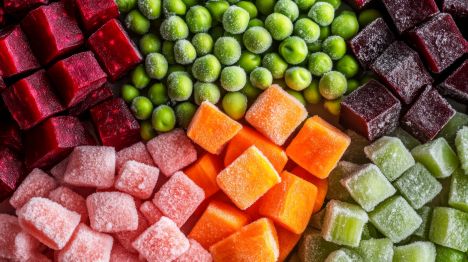Don't Waste It, Freeze It!
As summer approaches and the gardens start producing fruits and vegetables abundantly, the question is what to do with all the extra produce that you cannot consume or give away fast enough before it goes bad. The best way is to preserve it either through canning methods (water bath or pressure canning), dehydrating, or freezing. Many people often choose the route of freezing as it is the easiest, most convenient, least time-consuming, and a low-cost method. [If you do want to learn how to preserve using either of the canning methods, we have you covered! Check out our food preservation page.
To make sure that your freshly preserved fruits and vegetables have the longest freezer life possible and maintain their best quality, there are a few things to consider.
1. Make sure your refrigerator is at or below 40°F and your freezer is at or below 0°F.
2. Freeze foods in portion sizes that you will use for future meals. For example, freeze your fresh herbs in oil or water in ice cube trays for the perfect portion to add to recipes.
3. Use ‘freezer’ bags as they are thicker than regular storage ziplock bags and will keep your food fresher longer; or use freezer-safe plastic or glass containers.
4. To prevent freezer burn, remove as much air as possible from the bag or containers before freezing and avoid thawing and refreezing foods.
5. Prevent mystery foods in your freezer by labeling packages with date, name of item, and any other relevant information before freezing.
6. If using freezer bags, lay flat in a single layer to freeze first, then once frozen solid, store horizontally or vertically in the freezer to save space.
7. Do not thaw frozen foods at room temperature. Thaw food in the refrigerator or cook immediately from frozen. Do not cook food in the freezer bag – unless recommended by the freezer bag manufacturer.
8. Follow recommendations for freezing produce. Different fruits and vegetables have different freezing recommendations based on the structure of the plant. Some require blanching while others do not, and some require freezing in a liquid while others do not. Keep in mind that some foods do not freeze well and should be consumed fresh or preserved using another method.
Learn more about how to freeze specific foods from the National Center for Home Food Preservation or contact us at foodhelp@jocogov.org or 931-715-7000.
by Chelsea Reinberg, Nutrtition, Health and Food Safety Agent, 2025